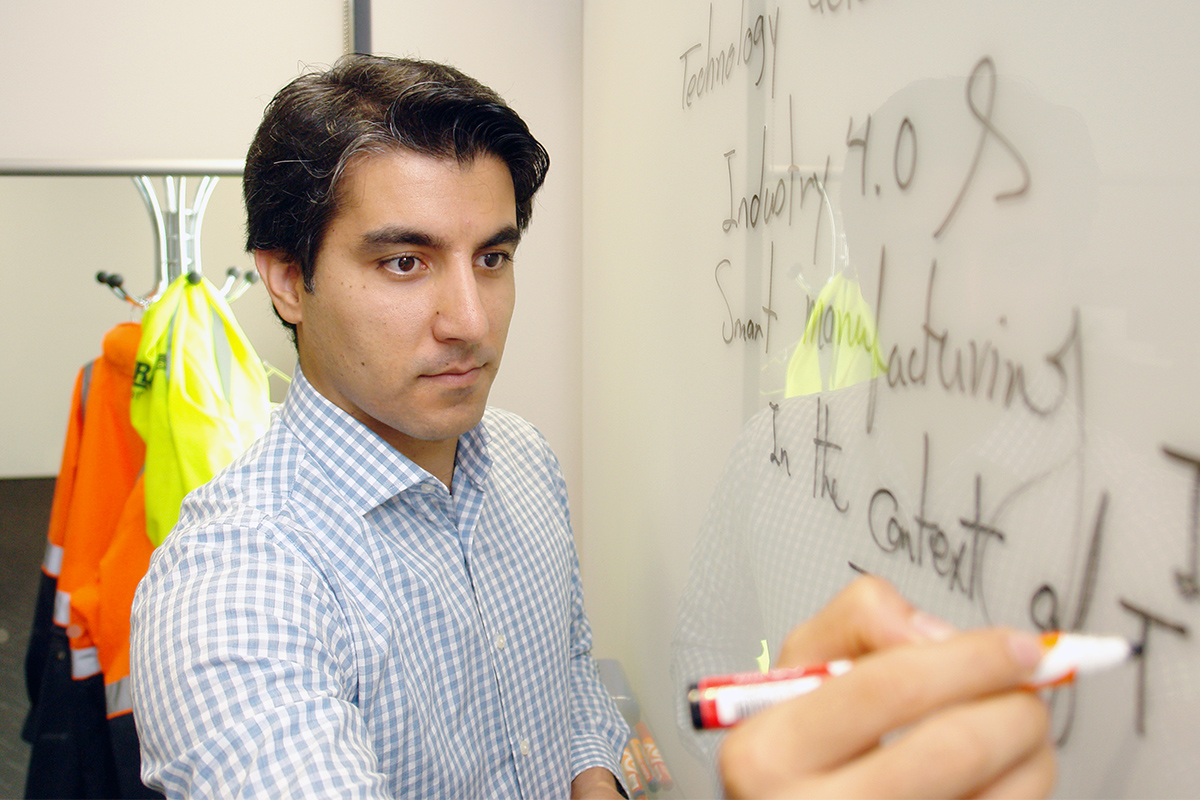Last month we let our members know what our strategic focuses for 2020 and beyond look like. Part of that strategy being to deliver solutions that supported our members in technical excellence and knowledge transfer.
A major target to achieve this, is to drive industry understanding and adoption of automation, productivity and Industry 4.0 in their workplace.
To achieve this we’ve attacked the goal from several angles.
Kick starting welding productivity and automation assessments to identify common issues we could assist our members to overcome.

Developing out our in-house capability in automation of welding fabrication to lead the way in helping our industry explore opportunities in 3D scanning, virtual-reality assisted fabrication planning, CAD data driven tool-path generation, robotic cell setup, and 3D printing.
And, next week we’ll be running a Bottleneck Analysis workshop in Auckland and Christchurch with the world renowned expert Arrie van Niekerk to develop a skilled workforce in this space. This explores how those in the fabrication business can use Theory of Constraints (TOC) to overcome roadblocks that slow productivity and drive profit margins down.
Last, but certainly not least – we recently engaged Reza Hamzeh to collaborate with us on a number of research projects in the space of Welding 4.0.
What will Reza be concentrating on delivering for us?
Reza came to us via our strong relationship with the University of Auckland, and will be with us for the foreseeable future to assist us in developing our Welding 4.0 capabilities.
He holds a Bachelors in Mechanical Engineering from the Polytechnic University of Tehran, Iran. And worked for DibaDATA Co. as a production engineer and project manager, before moving to Malaysia to continue his education in Manufacturing System Engineering at UPM University.
Since 2017 he’s been based in New Zealand working on his PhD research titled “Smart factory design and technology selection in the context of Industry 4.0”. Making him the perfect fit to collaborate with us.
He’ll be exploring the development of a Welding 4.0 readiness assessment tool for our New Zealand metals industry, and will also be supervising several undergraduate students working with us to develop a Welding 4.0 roadmap and design of a testbed for smart welding.
He’ll also be looking to facilitate a technology management course which explores the future of welding inspection.
Of this opportunity saying, “HERA has a good reputation for consultancy, education and advocacy, and has a large group of members from NZ’s metal-based industries. This excites me, as it means I’ll be able to engage in research that’s not only interesting from a scientific point of view, but also has real world application.”
“I’m highly motivated to work on the challenges that HERA’s members are facing. From ideation to launch, I’m looking forward to finding optimal solutions for them!”
Reza’s thoughts on Industry 4.0…
To me, innovation is bringing new idea, methods or technologies into a system to improve a process.
Although innovation can be promising, it has several aspects which makes it challenging to be implemented in different systems or organisations.
What I can say with certainty, is that Industry 4.0 and digitalisation are the future of manufacturing. Companies may not survive in a competitive and fast-changing market if they are not agile and flexible.
It’s this thinking that led to me collaborate with Callaghan Innovation and The Manufacturers’ Network, to carry out research on Industry 4.0 readiness in New Zealand.
It showed that while kiwi industries are interested in the Industry 4.0 concept and are motivated to start their journey toward digitalisation, they lack the technological support and knowledge to do so.
The work I’ll be doing with HERA will help address this. By exploring Industry 4.0’s benefits and the practical ways in which we can facilitate innovative disruption for their members.
